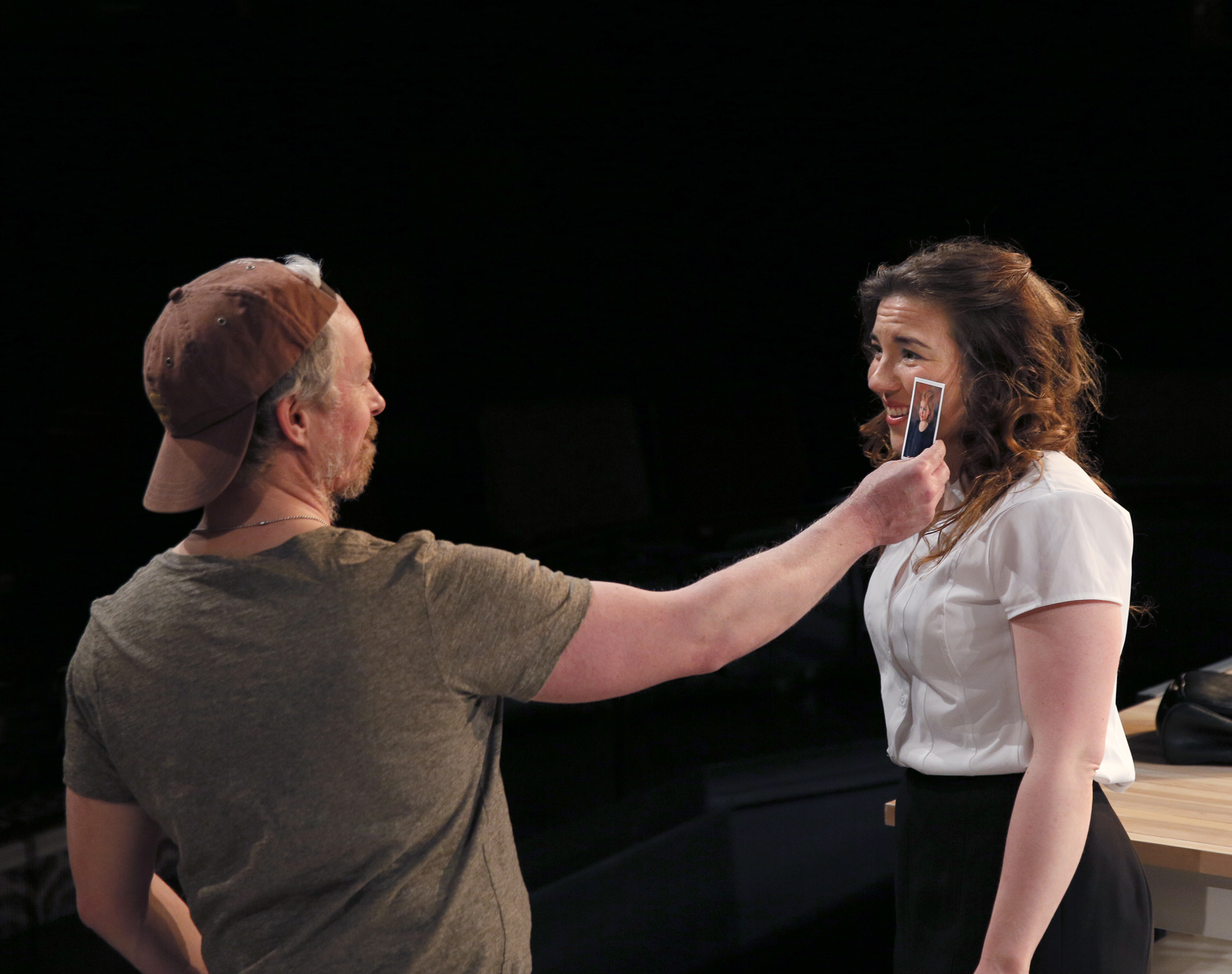Bethany
ACT Theatre, 700 Union St., 292-7660, acttheatre.org. $55 and up. Runs Tues.–Sun. Ends May 4.
In many ways Bethany is a traditional crime tale, with a woman pitted against unsavory forces and victimized by powers beyond her control. And yet Laura Marks’ hasty 2013 thriller is something new, presenting a fresh set of characters in a very dark, topical caricature of recession-afflicted America: a struggling single mother, a homeless vagrant, a scheming would-be motivational speaker, and a buttoned-down social worker. (Prompting them into conflict is the titular child, never seen but ever-present.)
The setting, the 2008 financial crisis, is communicated through a familiar yet unappealingly disorienting array of news reports heard during the play’s opening moments. Then we meet Crystal (Emily Chisholm) squatting in an abandoned home in a neighborhood ravaged by foreclosures. She soon encounters another squatter, Gary, a seemingly friendly homeless man (played dexterously by Darragh Kennan) who coaxes out her backstory: Crystal lost her home, and, after living in her car for a time, lost her daughter Bethany to Child Protective Services.
Crystal does have a job as a sales associate at a local Saturn dealership—an enterprise we know is doomed, as she cannot. Seeing her in driven sales mode at work is painful, her phony persona coming off as bad acting. (This is a difficult line for Chisholm to walk, but she lets Crystal’s true colors shine through in slivers of mourning and rage.) She continues peddling at home, desperately trying to convince a social worker to return her daughter, fixing up her adopted home as if it were her own, furnishing the kitchen with cheap Goodwill furniture, casting Gary as her plumber (in a rare moment of levity), and even forging a lease. To close a deal at the Saturn showroom, she goes out for drinks with smooth-talking wealth guru Charlie (Richard Ziman), hoping the seven-percent commission will provide a road back to pre-crisis security.
Crystal’s desperation is the engine of the drama, but also its flaw. With Bethany clocking in at a perhaps too-brief 80 minutes, the players—directed by John Langs—sometimes feel in a rush to enact their doom. The cast is hard-pressed to portray real characters in the vignettes one might find in a newspaper brief.
It’s unsurprising when Crystal finds she’s been the mark all along, but what is surprising is the chaos that erupts when the facades fall away, leading to a level of stage violence that, while not explicit, is terribly unsettling. We see Crystal’s real nature, along with Chisholm’s command of character, though Bethany’s savage finale also seems a kind of surrender on Marks’ part. Her play begins according to the pitiless logic of economics, but finally spins into a sort of unhinged cosmic revenge scenario. Is this just fantasy? It would be convenient to think so.
mbaumgarten@seattleweekly.com








